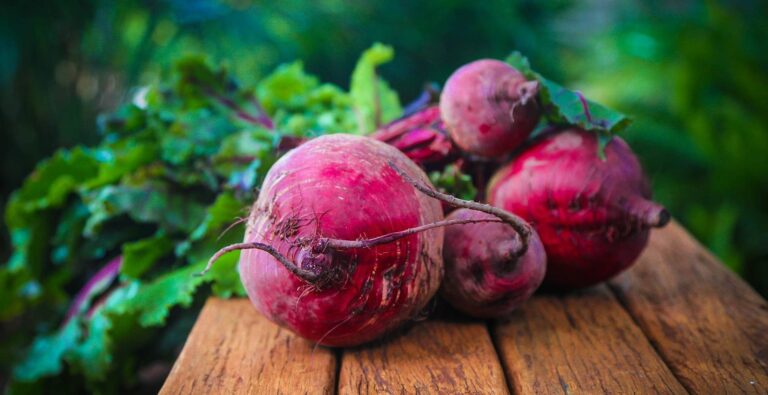The Queen Of Vegetables: The Glorious Beetroot

Chemotherapy treatments were always difficult, riddled with fatigue and after-effects of nausea. I remember my mother making me beet juice every morning, and I have to say I always felt better afterwards (at least as much as one can when going through this type of life experience).
From juice to hummus to salads, beets are everywhere, adding color, antioxidants, and flavor to every food. Emerging science-backed benefits of beetroots are giving us one more reason to add these delicious bites to our plate.
So Many Health-Promoting Qualities in One Humble Vegetable
Just one serving of beetroot is a great source of fiber, iron, which is crucial for oxygen delivery to the brain, and vitamin C, which boosts immune function.
Paralympic gold medalist, David Weir, vouches for a shot of beetroot juice as the secret behind his success. Numerous research studies find that adding beetroot juice to your workout regimen has the potential to improve endurance and decrease fatigue after exercising. It also improves blood flow to the brain and other organs. This is because beets are rich in a compound called nitrate that helps bring more oxygen to muscle, allowing the body to recover more easily after a strenuous workout.
A Double Bonus with Fermented Beets
The pickled form of beetroots makes for a tasty prebiotic that helps regulate diversity and increase the number of beneficial microbes and bacteria within the gut. Our gut health is closely linked to the diversity of “good bacteria” that are essential for the proper functioning of our intestines and entire body. Beets are an excellent source of inulin, a type of soluble fiber that feeds the good bacteria in the gut. These good bacteria convert inulin to short-chain fatty acids that provide a plethora of health benefits. By increasing the good bacteria, beets help make our gut healthy, leading to a healthier brain in return.
Secret Weapon for Memory Loss
This superfood tops the list of anti-aging foods and helps reduce the incidence of age-related cognitive decline. Betalain, the compound that gives beets its vibrant color, is shown to act as an inhibitor of certain chemical reactions in the brain that are involved in the progression of Alzheimer’s disease.
As our brains age, we are at a greater risk for neurodegenerative diseases and dementia. However, beetroot is the answer to extending the health of our brain and may help stall the effects of age-related cognitive diseases. It helps blood flow to the brain by promoting increased oxygen to the frontal lobe and to our overall body that helps prevent damage, such as stiffness, to the brain’s vessels.
Eating healthy is a long-term investment in yourself, and beetroot is just the perfect, incredibly delicious superfood to incorporate into our diet.
